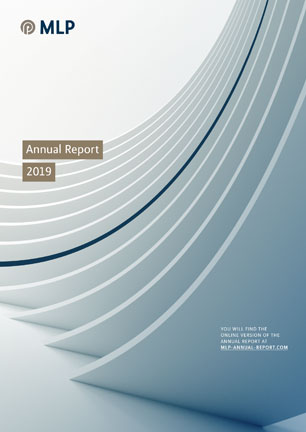FORECAST
Future overall economic development
The economy in the eurozone is likely to recover slightly in 2020. According to data published by the FERI Group, the expansive monetary policy and the break in the trade dispute between the US and China will be the greatest contributors to this. Accordingly, the eurozone and Germany will continue to enjoy economic growth stimuli over the coming quarters. However, the international economic environment remains a significant risk factor. FERI Investment Research is anticipating growth of 1.2% in the eurozone for 2020.
Germany facing structural deficits
Although the German economy is anticipated to record moderate growth in 2020, there are still uncertainties - primarily because Germany's industry is more heavily impacted by the international economic environment than the rest of the single currency zone. Indeed, the threat of the US introducing import duties on passenger vehicles and vehicle parts would have a severe impact on the German economy.
The risk of international economic encumbrances also impacting domestic demand in Germany is significant. Stifled figures from the employment market are already providing some initial warning signs here. However, discernible wage and pension increases are continuing to have a positive effect on private consumption and are likely to bolster the economy, at least for the time being. FERI Investment Research is forecasting economic growth of 0.8% for Germany in 2020.
Employment market prospects less dynamic
Based on estimates of the Institute for Employment Research of the German Federal Employment Agency (IAB), the employment market in Germany is likely to develop less dynamic than before. The economic downturn will put a stop to the decline in unemployment in Germany in the near term. With regard to the average for 2020, unemployment is therefore likely to stagnate at around the same level as 2019. In terms of gainful employment, the experts from the IAB are forecasting a slight increase of 120,000 persons.
However in the long term, the employment market will develop positively, especially for skilled professionals. Basel-based research institute Prognos estimates that there will already be a staff shortfall of around 1.8 million persons in Germany in 2020, including 1.2 million positions for those with vocational qualifications and around 500,000 for university graduates. Based on information provided in the Prognos survey, the labour shortage could even reach 3.9 million by 2040.
Salaries and wages on the rise – albeit at a slower pace
Private households in Germany will also benefit from a significant increase in salaries, as well as an increase in disposable income in 2020. The Tax Estimation Workgroup is forecasting a 3.2% increase in gross salaries and wages for 2020. At an increase of 3.1%, the disposable income of private households is also set to rise considerably. FERI Investment Research is anticipating a savings rate of 10.8% in Germany for 2020 (2019: 10.9%).

